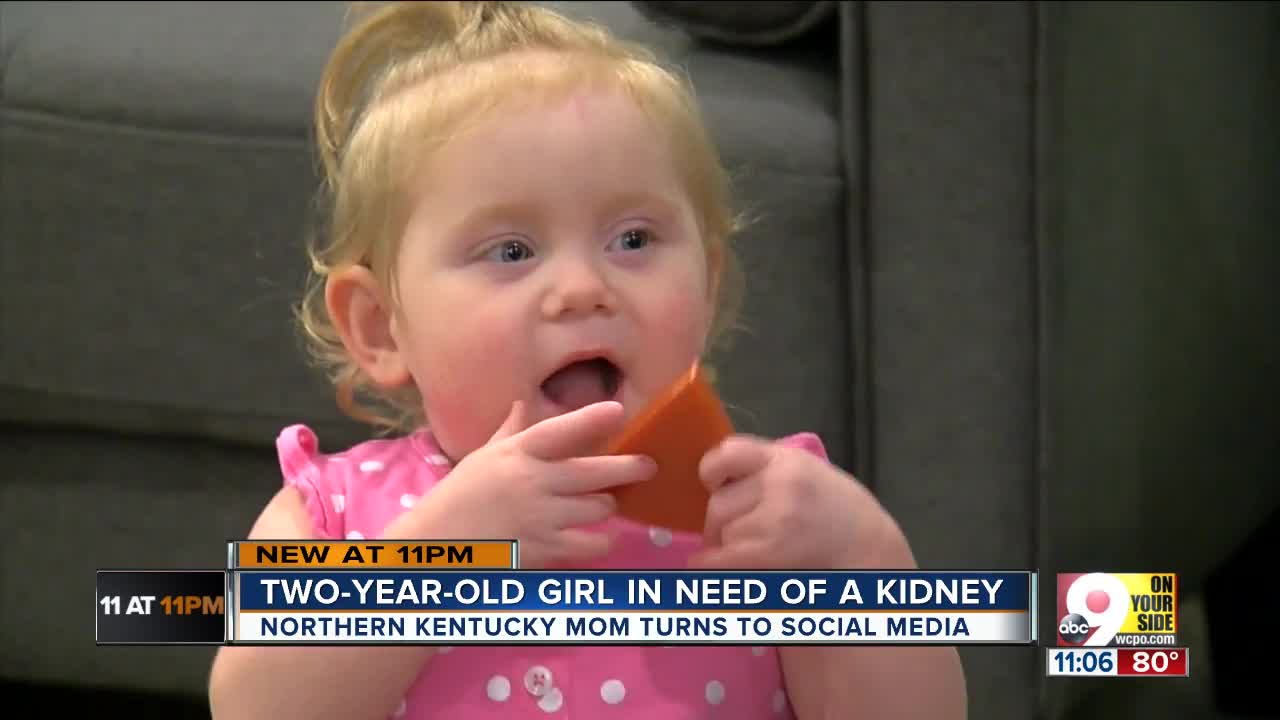CINCINNATI -- Lily Ramey weighed two pounds when she entered the world -- a spindly, pink baby smaller than most rabbits and only just larger than the average full-grown squirrel. There are things with hollow bones that grow bigger.
Her mother, Shannon Ramey, knew she'd achieved a miracle simply by living through her own birth. Ultrasounds performed at Children's Hospital showed Lily's kidneys covered in cysts and her own levels of amniotic fluid dangerously low. Carrying the pregnancy to full term involved luck, faith and intensive care.
"We had to pray and hope that she (would live), and she did," Ramey said. "She kind of defied all the odds."
Because of her multicystic kidneys, Lily needed dialysis as soon as she was born; because of her incredibly small size, she couldn't receive it. She finally started treatment at six months old, weighing five pounds, and has remained on it ever since.
Lily reached a bright, happy and hard-fought two years old this year. She'll need the help of a kidney donor, her mother said, to make it any further.
"I am usually a private person," Shannon Ramey said. "I don't like to ask people for a lot of things. There is just high blood pressure and heart issues within my family that kind of excludes them from being able to donate."
A life with a working kidney for Lily would be a life free from 13-hour dialysis sessions, clinic appointments and blood work; a life in which Lily would be able to eat solid food instead of relying on a gastrostomy tube; and a life in which she's able to run and play with other children her age.
"You see a lot of two-year olds that get to swim and they get to play at playgrounds and they get to climb on things," Ramey said. "We just always have to be so cognizant of her catheters and her tubes and germs."
No living two-year-old is mentally equipped to make a significant decision like organ donation, and healthy, deceased toddlers' organs are in short supply, but Kidney Foundation development director Perry Hall said it's not necessary for children to receive donations from other children.
"An adult can donate to a child," he said. "There is enough room for a kidney to fit into their abdomen. A lot of people don't know that when you receive a kidney, it goes through the front."
Ramey said her daughter's resilience and the support of other "kidney moms" have inspired her to find her own strength and believe in miracles. She hopes they'll inspire a stranger who hears Lily's story to give a life-saving gift.
"Being a donor is a sacrifice that only really strong people make," she said. "It is selfless, and it is so important. There are so many people out there waiting for organs."
Even if they aren't a match, the decision to donate could help another of the 600 local families with a member in need of a working kidney. According to Hall, 10 percent of the Tri-State's prospective kidney recipients are children.
"You can save a life and be a hero," he said.
Anyone interested in finding out whether they are a match for Lily should call 513-636-6794 or 513-636-4312 for more information.
Those interested in donating in the Cincinnati area more generally can learn more through Cincinnati Children's Hospital and the National Kidney Foundation. The latter will hold a workshop meant to connect prospective donors with prospective recipients Nov. 16 at Children's.



